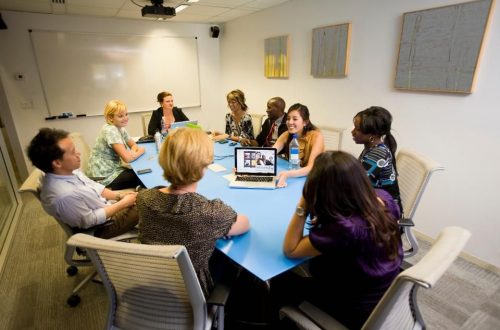
Translating Physical Business Skills Into Digital Interactions: Part Two
My last article was about how to approach establishing new relationships in a time of mostly remote commerce. I went over how to leverage the physical business skills you already possess in a digital way.
This time, I’ll focus on how to handle existing relationships you have with clients. These are folks you have some history with, but the ongoing work you’re doing together looks different now. How can you nurture those relationships?
1. Communicate Value
If you’re a service provider, ultimately you’re a line item in someone’s budget. That means constantly showing them the value you’re providing.
This usually comes in the form of in-person quarterly business reviews (QBRs) or interactions at trade shows. Those things aren’t going to be happening now — probably not for a while. Similarly, when issues arise in the middle of projects, working groups often gather to solve the problem, but those can’t happen like they once would have.
These interactions are key to making a client feel good about having you as a provider. They give them confidence that you’re working on their behalf, solving problems and making them better. If those meetings can’t happen, how can you prove your worth?
I suggest establishing a single source of truth for metrics. That source needs to be clear, easily accessible and something that both parties look at on a regular basis. In the past, many people worked on blind trust, but transparency is so important right now. Too much is unpredictable and out of our control.
Your source should be as digitally accessible and as close to real time as possible (I’d aim for daily snapshots). Once you establish this dashboard and you’re all talking about it regularly, the need for in-person QBRs becomes less critical because everyone is in the loop. The review can then be more about summaries, conversations and planning next steps.
Use video as much as possible for meetings, and practice your digital presentations. Make sure you’re consistent from report to report. And before starting, establish metrics everyone agrees on. Use the same key performance indicators (KPIs) throughout, and have a clear dashboard to digest them.
2. Deepen Relationships
Throughout your tenure with a client, there are milestones for actively deepening the relationship. Typically, this means dinners, cocktails, events and business trips. It might even be as simple as a genuine handshake.
Those types of things are fewer and farther between these days. And when they can happen, the format is different. There are fewer people and virtually zero physical contact.
These qualities are hard to replace, so the providers who maintain genuine relationships during this time are likely to stand out.
Focus on what you can control about this situation, and meet your clients where they are. It won’t be on the golf course, but connecting is possible. As this remote work reality unfolds, many people are looking more closely at the value of gathering in groups online and using social media to connect.
Before, you may have never dreamed of connecting with a business associate outside of LinkedIn, but it’s time to get a bit more personal. Follow them on Instagram, or send them a Facebook friend request. If you truly want to grow your relationship, you have to invest in these places and expose yourself a bit more.
Share posts of your own. Send them a private message on Facebook to check in. Your ultimate focus should still be on providing value in the areas they’re entrusting to you, but if you can let a bit of your personal side bleed through, that’s a good thing.
While you can’t give someone a physical handshake, a genuine and thoughtful comment on their social media about something that is obviously important to them (their kid’s ballet recital, a belt they just got in karate, etc.) will stand out. Connecting on that level is a unique interaction to have with a business colleague, and if there was ever a time to get “real” with people, it’s now.
3. Show Appreciation
In the past, the best service providers were especially effective at those special little touches, such as showing up on the receptionist’s birthday with cake or bringing everyone’s favorite donuts to a meeting. That’s not an option right now. But it doesn’t mean we can’t show our thanks in impactful ways. We just have to think more contextually.
One of my most memorable experiences as a remote worker was when I was working in Vancouver and my team was mostly based in the United States. The day after my child was born, my wife and I received a generous gift certificate for a meal prep/food delivery service.
My team couldn’t come to a baby shower or visit us in person, so they sent this thoughtful gift instead. The note that came with it made it clear that they wanted to do something to help lighten our load and ensure we were eating well and taking care of ourselves. It was incredibly thoughtful. Someone obviously took the time to match the gift with a specific problem — all while doing it digitally.
It’s not uncommon for companies to spend thousands of dollars at in-person client meetings or QBRs. If you’re saving on those expenses because of the current climate, don’t sit on that money. Invest it back into the relationship.
Take what you would have normally spent on these events and divide that total among those team members. Send everyone gift certificates for their local grocery store, for example. That’s likely more in line with what people need right now anyway.
Showing real appreciation will nurture these relationships and help ensure people remember you. Next time you need a favor or a bit of patience when your servers crash, they’ll remember how you’ve treated them.
We’re all learning how to operate in this new, socially distanced landscape. Don’t let that keep you from growing your business relationships. Where there’s a will, there’s a (digital) way.
This article first appeared on forbes.com on September 18, 2020





